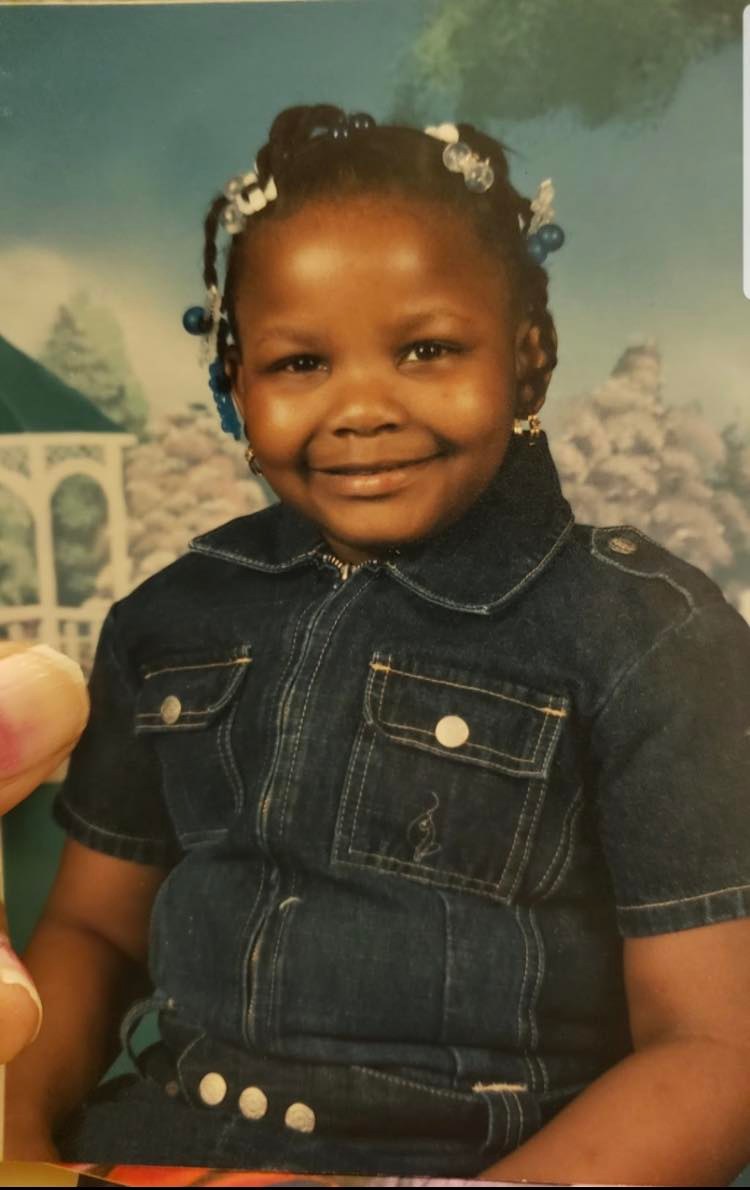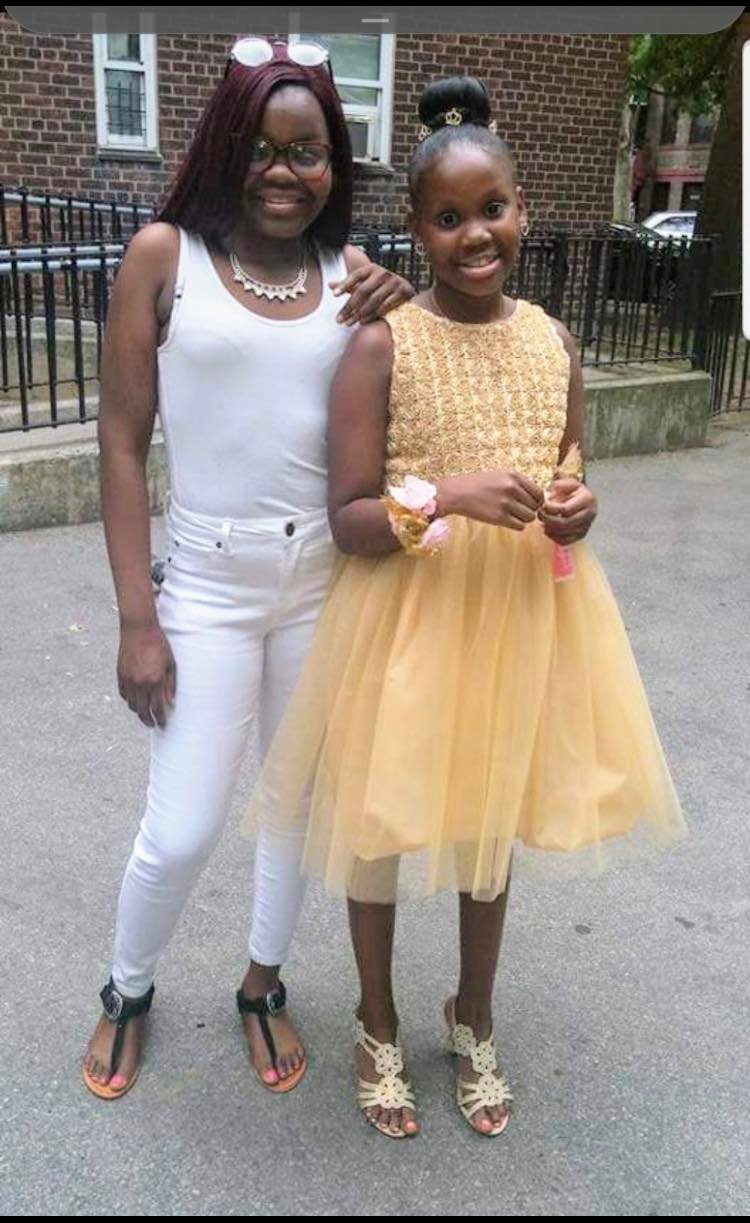Jahari Shouldn’t Have Died — How “Jesse Was Here” Helped Her Mother Grieve
Written by: Makaila Heifner
5 minute read
September 8, 2022
Editor’s Note: Jesse Was Here, supported by the JDRF – Beyond Type 1 Alliance, provides resources, support and tools for those navigating life after a type 1 diabetes-related death.
Jahari Destiny Shand McGuire passed away when she was only 20 years old. What started as a urinary tract infection turned deadly when her healthcare team failed to recognize the symptoms of sepsis, a life-threatening complication from infection, that they believed was catalyzed by her diabetes. Suddenly, her entire family was thrust into the grief cycle and faced the question, “Why Jahari? How do we go forward?”
A few months after her passing, Jahari’s mom, Sachi, was introduced to Jesse Was Here, an online community of parents and family members who have lost a loved one to type 1 diabetes. From there, she was able to begin her healing process.
Meet Jahari — she loved to sing, dance and be creative

Jahari was quiet in public. She liked being independent and didn’t care what others thought. When she was alone with her family, however, she opened up; she loved to sing and dance. She was creative, cutting up clothes to make them her own.
Jahari was extremely close to her grandmother, who helped raise her and her brother while her mom worked. When Jahari was 5, her grandmother passed away causing Jahari to fall into depression. She stopped singing and dancing and became very closed in. Doctors recommended starting her on antidepressants, but her parents opted to keep her off them.
Over the next few years, Jahari remained reserved, but her mom noticed she was also losing weight and was always thirsty. At age 9, Jahari was diagnosed with type 1 diabetes. Her family had some knowledge of diabetes; both her maternal grandfather and grandmother had type 2, and her mom was a nurse who had gestational diabetes when she was pregnant with Jahari.
Stuggling with her diagnosis — and not getting the type of healthcare support she needed
Jahari struggled with her diagnosis. She didn’t want to appear different from her peers and would take her insulin pump off and hide it when she got to school. Eventually, the nurses and teachers began to notice and asked, “Where’s your pump?” Jahari would get angry, she didn’t want others to ask what the device was.
Her insecurities continued, leading to unhealthy blood sugar levels and once high school hit, she began losing vision in her eyes. By the time she reached 14, she began developing cataracts and glaucoma. The family struggled to find an eye surgeon who would see her because she was so young, but after years of searching the family discovered Dr. Feig who restored Jahari’s vision to 20/20 when she was 17. Fixing Jahari’s vision helped restore her to her normal self.
Part of Jahari’s struggle with her diabetes management was distrust in her pediatric endocrinologist. Sachi explains the doctor was hard on Jahari in an attempt to make her understand the weight of her diagnosis. “I’d have to remind [Jahari] to calm down,” remembers Sachi. “I’d tell her she didn’t know what the doctor was going to say and it could be okay. But I got so tired of seeing her like that so we decided to look for a new doctor.”
Once the family began seeing a new endocrinologist, Jahari’s moods improved but her overall health began to decline. She was in and out of the hospital with diabetic ketoacidosis (DKA).
When her hospitalization turned deadly
In early January 2020, Jahari went to the hospital for a urinary tract infection (UTI), a common infection that people with diabetes are more prone to developing. The doctors closely monitored Jahari’s vitals but decided to keep her for the week to make sure the infection cleared and keep an eye on her blood sugars before sending her home.
“She was a few days away from coming home,” remembers Sachi. “I was on the way to the hospital with Jahari’s younger sister and [Jahari] called me to ask if I could bring her scissors. I asked why and she said her grandmother put braids in her hair, but she hated them and wanted to take them out. I told her she’d have to wait and I would take the braids out when I got there. She sounded normal and said she was okay… but 30 minutes later I got a call from the nurse that said they were performing life-saving procedures on her and they asked me if I wanted them to continue.”
It was the call no parent ever wanted to receive, one that floored Sachi and filled her with immediate terror. Sachi and her youngest daughter rushed to the hospital, but by the time they got there, Jahari already passed. When people ask what happened, Sachi tells them, “She developed an infection that her body was too weak to fight.”
The event was so sudden that Sachi had to ask the nurse if she had really spoken to her daughter. The nurse confirmed they had spoken and told Sachi the last thing Jahari said was, “I seen something I ain’t ever seen before,” then closed her eyes and passed away.
How Jahari’s family found support through Jesse Was Here
The sudden loss thrust Jahari’s entire family into grief, and they all dealt with it in different ways. Sachi wanted to talk about Jahari and discuss her grief with the family, but her other kids didn’t want to talk.
Jahari’s older brother, who often acted as her protector, tried to give a speech at her funeral but couldn’t. In turn, his six best friends got up and delivered his speech for him. Sachi’s grandson, who is 8 years old now, loves to talk about Jahari and will go into her room to look at her things and kiss her photo.
As Sachi sought out support, she joined a few Facebook groups for parents who lost a child. She quickly noticed most of the posts were about losses to things like car accidents or overdose; Sachi felt misunderstood and finally asked if anyone had lost a child to diabetes. A woman reached out and gave Sachi the link for Jesse Was Here and recommended Sachi join.
“It’s been amazing, I love it,” says Sachi. “I wish no one had to be a part of our group, but it’s so helpful to have a community of people who understand what you’re going through. Their stories are my stories.”
Now, Sachi is committed to keeping Jahari’s memory alive. “I know it makes some people uncomfortable, but I always talk about her and tell her stories.” She also enjoys collecting charms for a Pandora bracelet that is placed around Jahari’s urn.
“I miss Jahari more than anything,” Sachi shares. “But I hope to use her story to bring awareness and understanding to diabetes. I see so many Black and brown children and families in my community that have no idea about diabetes, they have no resources, but I hope to change that so no one else has to go through what we did.”
If you need support navigating a loss related to type 1 diabetes, Jesse Was Here is an inclusive community that is here to help.

Author
Makaila Heifner
Makaila was diagnosed with Type 1 diabetes at 16 months old. Before joining the Beyond Type 1 team in 2019, she worked at several diabetes camps, including Camp Leo and DYF. Makaila earned her B.A. in Global Studies and a Minor in Public Policy from the University of California, Berkeley. She now lives in Austin, TX, and enjoys getting outside, seeing live music, and reading IMDB movie trivia. Check her out on Instagram: @makailaheifner.
Related Resources

The holiday season is filled with celebrations, family gatherings, and plenty of holiday foods. No...
Read more

Managing diabetes is a complex and often overwhelming journey—even nine years after my daughter's diagnosis....
Read more

The holiday season is all about celebration, family, and joy—with a little chaos sprinkled in...
Read more


